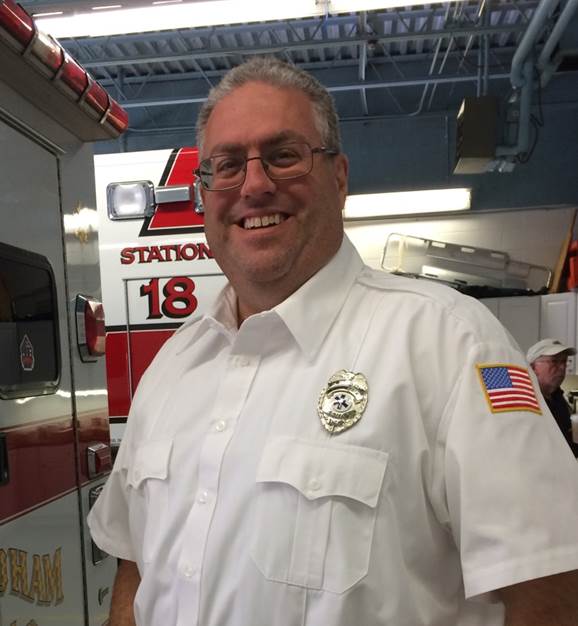|
Today was our final practical exams, a requirement for graduation from the EMT course. Designed to test our knowledge and understanding of all things EMT, covering medical and trauma assessments along with key skills including airway management, bandaging and splinting, CPR and AED usage, and pharmacological interventions such as EPI-Pen and Nitroglycerin administration.
And although the final practical exams were designed to test the skills I have gained over the past 4 months, in the end it taught me perhaps the most important lesson of all -- a reminder that being humble and keeping an open mind may just be the most important EMT skills I can master. While the EMT course has been challenging, especially for someone who has been out of the day-to-day experience of classes, studying, and test taking for almost 30 years, I felt that I had done pretty well for myself. My quiz and exam grades were always high, and while there was a lot of memorization to accomplish, my own life experiences often helped to put class material in context and perspective. Eighteen months as a driver for the squad gave me an additional sense of how to interact with patients, and the experience of having observed other squad EMTs actually putting some of these skills in action in the course of our calls might have even offered me an edge in some scenarios. Through the class, the practical exams had gone extremely well, with several instructors telling my that I appeared to have that special quality that would make me a good EMT. I passed through all the practical exams without requiring remediation or a second (and final) attempt to demonstrate a critical skill. And then there was today. Final exams. And on the fourth and final skill station, I made a huge mistake, one that I won't quickly or easily forget.
0 Comments
With the first set of EMT written and practical tests behind us (Ashley, our Cadet member, and myself both scored very well...thanks to all who offered their well wishes!), our classwork moves on to a more focused set of lectures on medical emergencies, and their associated care and treatment options.
While we are told not to diagnose underlying causes of illness, in practice, EMTs play a very key role in uncovering critical signs and symptoms of those underlying medical issues through our history-taking activities (the aforementioned "million questions"), which we provide to medics and hospital staff as part of our transfer of patient care. The questions also guide us in developing an index of suspicion for what may be happening with our patient, allowing us to be more aware of the risks for cardiac, respiratory or neurological issues that may develop while we are in transport. Classwork this week focused on the various causes of respiratory distress. If you love to read a good detective story, this set of coursework is for you. The textbook almost reads like a good mystery novel, filled with similar signs and symptoms for many different potential causes of dyspnea (or shortness of breath). And only by combining the practical lung sound skills we're learning to listen for, with other vital signs (including pulse rate and blood pressure), key medical history, and signs and symptoms from our observations and the patients own behaviors and expressed issues, can we reach a clear index of suspicion on key underlying possibilities to be aware of. Part of the practical skills we've been focusing on in class are the primary and secondary assessments that EMTs do on patients. While the primary assessment is done on scene, and focuses on managing life threats, the secondary assessment can be done on scene or in the back of the ambulance while we are transporting a patient to the appropriate medical center.
The secondary assessment, if we aren't still actively managing life threats (like performing CPR), allows for a more through inspection of the patient, either for a specific injury or illness symptom (assuming they are conscious and alert enough to talk with us), or a full-body scan intended to ensure we don't miss any additional injuries (which is especially important with an unconscious or unresponsive patient, or even a conscious one with an altered mental status). This also includes taking critical vital signs, including pulse and blood pressure, in order to determine if our interventions are producing the right positive results, or whether our patients are sliding towards dangerous grounds, such as shock. So ... Who would have thought that one of the best study aids I could get for this stuff would be my 8-year old son and his imagination? |
AuthorJon Alperin, one of our MFAS volunteers, shares his journey to becoming an NJ certified EMT. from the Start
Here is Jon's journey, presented in time order:
Archives
June 2016
Categories
All
|


 RSS Feed
RSS Feed
